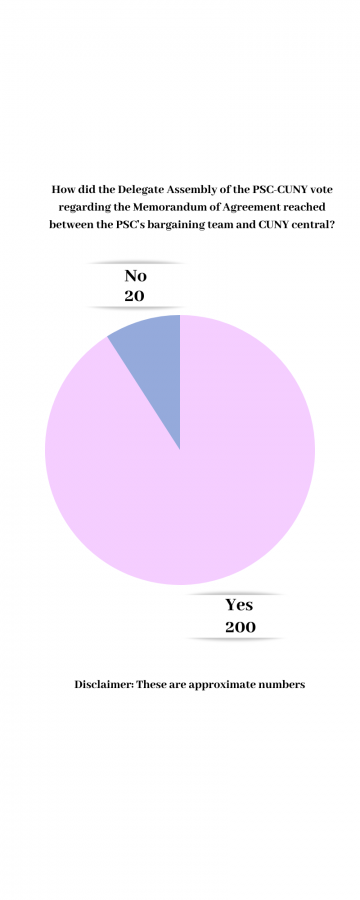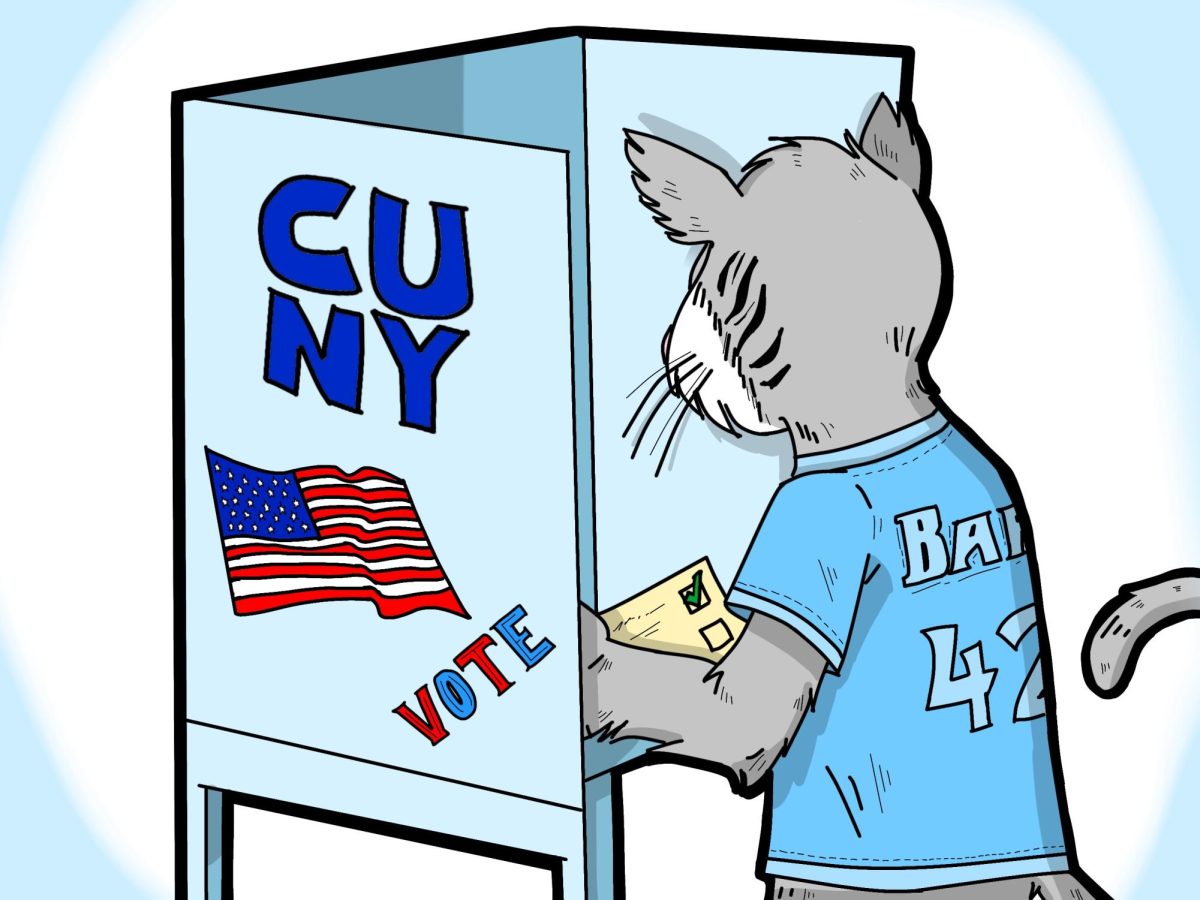After the continued efforts of the Professional Staff Congress to increase the salaries of almost 30,000 adjuncts and full-time faculty, they have reached a historic agreement with the City University of New York.
The agreement provides wage gains for adjuncts and full-time faculty, and further professionalizes the work of part-time faculty at CUNY.
The starting pay for adjunct faculty will increase from the current $3,222 minimum to a salary of $4,469 for a three-credit course and $5,586 for a four-credit course. In addition, the agreement increases salaries across the board by more than 10%, through annual increases of 2%.
The term of the new contract will be from Dec. 1, 2017, through Feb. 28, 2023, pending approval by the CUNY Board of Trustees and ratification by the union’s membership.About 20 delegates voted NO and the rest and about 200 voted YES at the Delegate Assembly.
Although this contract falls short of the original 7K for adjuncts, with a total of a 71% salary increase, it is still a step forward according to Baruch’s chapter of PSC’s President Vincent DiGirolamo.
“I think it can rightly be called a historic breakthrough contract that we can all be proud of. I know it falls short of our 7K demand, but the gains made in terms of adjunct pay, across the board salary increases, increased funding for professional development and research and conference travel—all of that, plus, is too much to spurn,” said DiGirolamo.
This sentiment is shared among the faculty who had fought for the contract. “The contract is not perfect,” acknowledged Baruch English Professor Frank Cioffi, a member of the PSC’s Delegate Assembly.
“We did not get the $7K per course. Adjuncts now have to work one office hour for each 3 credits that they teach. There are no longer step increases possible for adjuncts.
Full-time faculty are being offered a 0% pay increase for 2017–18, which means that the back pay will be only for slightly more than one year rather than for slightly more than two. Concessions had to be made, as they are made in every bargaining situation.”
However, DiGirolamo did express that, the union will continue to fight for the original 7K proposal. “Whether members vote ‘yes’ or ‘no’ on the Memorandum of Agreement, the fight for 7K will continue. It was the demand of the entire union.”
This belief was shared among other members of PSC. Stuart Davis secretary of the PSC international committee agrees. “I do not think voting “yes” on this contract is tantamount to abandoning significant work done on CUNY campuses,” he said.
Jane Guskin PSC-CUNY alternate delegate, who voted NO at the Delegate Assembly and voted NO again as a member to reject it, expressed her discontent with the contract.
“The adjunct raise is not nearly enough: our current pay of 3.2K per course would only go up to $5.5K per course… and not until 2022. Adjuncts at many other NYC colleges are already making more than 5.5K. We are far behind everyone else and 5.5K per course is not even a living wage in New York City.”
“It definitely won’t be a living wage in 2022. The demand for $7K per course was supposed to get us closer to the equivalent teaching pay of a regular (non-adjunct) faculty member. This contract comes up short.”
Concerns around the contract arose as to how this affects students.
When directed to DiGirolamo he expressed that while there is no direct correlation between wage increases and tuition hikes, “on a basic level, the contract means that CUNY students are less likely to be taught by people who can’t pay their rent, put food on the table, or afford basic health care.”
“One of the best ways students can join the fight against austerity budgeting and tuition hikes is to join the CUNY Rising Alliance,” said DiGirolamo in an interview.
In terms of the hiring freeze, it has an advantageous effect on adjunct hiring DiGirolamo explained as “department chairs will be compelled to employ more adjuncts if they can’t get lines to recruit full-time tenured or tenure-track professors to replace professors who have retired or otherwise moved on.”












